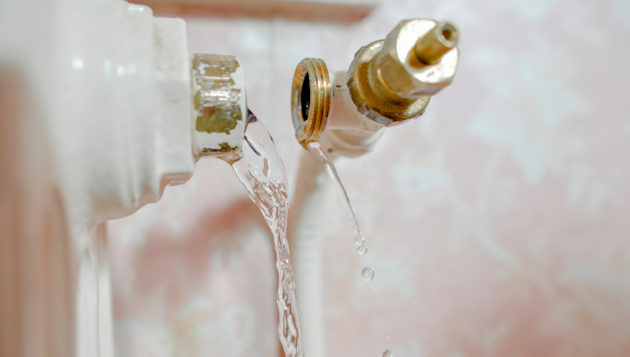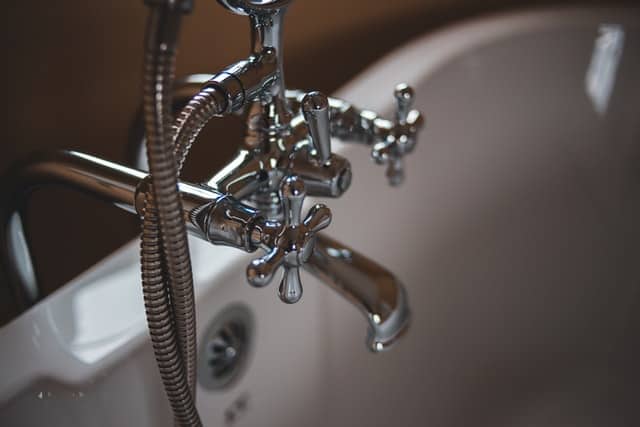5 Winter Hacks to Safeguard Your Pipes from Frigid Weather Bursts
5 Winter Hacks to Safeguard Your Pipes from Frigid Weather Bursts
Blog Article
Listed here in the next paragraph you will discover additional sound help and advice involving Prevent Freezing and Bursting Pipes.

All homeowners who reside in temperate environments should do their best to winterize their pipes. It is something you must do throughout autumn prior to deep wintertime really starts. Failing to do so can mean disaster like icy, cracked, or ruptured pipes. If the weather outside is terrible, here are some helpful winterizing hacks to keep your plumbing system secured also.
Activate the Faucets
When the temperature declines and it seems as if the icy temperature level will certainly last, it will help to transform on your water both inside and also outdoors. This will keep the water streaming with your plumbing systems. You'll end up squandering gallons of water this method.
Open Up Closet Doors Hiding Plumbing
When it's chilly outside, it would certainly be helpful to open cabinet doors that are camouflaging your pipelines. Doing this little technique can keep your pipelines cozy as well as restrict the possibly dangerous outcomes of freezing temperature levels.
Require Time to Cover Exposed Water Lines
One great and easy hack to heat up icy pipes is to wrap them with warm towels. You can cover them initially with towels. After safeguarding them in place, you can pour boiling water on the towels. Do it gradually to allow the towels soak up the liquid. You can also use pre-soaked towels in hot water, simply don't forget to wear protective handwear covers to secure your hands from the warm.
Attempt a Hair Dryer or Warmth Weapon
When your pipes are virtually freezing, your reliable hair dryer or warmth gun is a blessing. If the warm towels do not help displace any clearing up ice in your pipelines, bowling hot air straight right into them may help. Do not utilize various other objects that produce straight flames like an impact torch. This can result in a larger disaster that you can not regulate. You may wind up damaging your pipelines while trying to thaw the ice. And also over time, you may even end up burning your home. Beware!
When Pipes are Frozen, shut Off Water
Switch off the major water valve promptly if you see that your pipes are totally icy or almost nearing that stage. You will normally locate this in your basement or utility room near the heating unit or the front wall surface closest to the street. Transform it off today to prevent further damages.
With more water, more ice will load up, which will at some point lead to rupture pipes. If you are unsure concerning the state of your pipelines this winter months, it is best to call a specialist plumber for an examination.
All home owners that live in warm climates should do their best to winterize their pipelines. Failure to do so can spell disaster like icy, broken, or burst pipelines. If the warm towels do not assist dislodge any kind of clearing up ice in your pipes, bowling warm air straight into them might assist. Turn off the major water valve right away if you notice that your pipelines are totally frozen or virtually nearing that stage. With more water, even more ice will certainly pile up, which will at some point lead to break pipes.
PREVENT YOUR PIPES FROM FREEZING THIS WINTER
A Leading Cause of Property Damage
When the weather is taking a deep nose dive into the cold dreary days, the risk of your pipes freezing and potentially bursting skyrockets. Unfortunately, during these cold dreary months, burst pipes are the most common denominator for property damage. The pipes that are most at the risk are those that are in areas where it is most cold in your home. For instance, pipes located in interior places such as basements, attics, and your garage. Unfortunately, that doesn’t mean that the pipes running through your cabinets or exterior walls can’t freeze. Good news, however, is that you can do things to help prevent pipes from freezing.
How to Prevent Pipes From Freezing
Once the temperature starts to drop during the winter, you should be taking the proper measures needed to ensure that your pipes stay warm and that there is circulation of water through them. Some steps that experts may recommend could go against your better judgement when it comes to saving water and heat. However, it would go without saying that when expenses are compared, damaged pipes could put a bigger dent in your wallet than a water bill.
What Can I Do?
Keep your garage door closed. This is very important, especially if you have water supply lines running through your garage. Open your kitchen and bathroom cabinets to allow warm air to circulate through them. Allow air circulation throughout your home. Keeping the interior doors open will once again allow the warm air to circulate inside your home. Ensure your thermostat is running the same temperature throughout the night and day. If you plan to be away from home during the cold months, set your temperature no lower than 55° F. This should provide enough heat to keep the pipes warm and prevent any remaining water inside the pipes from freezing. For more of a long-term solution, add insulation to attics, basement, and other crawl spaces around your home. By allowing your faucet to drip, it will alleviate pressure in the system. This is important because the pressure that is created between the blockage and the faucet can potentially cause the pipes to burst. Allowing the faucet to drip will prevent the pressure from building up, therefore keeping the pipes from bursting. Seal any cracks, openings, and crawl spaces around your home to prevent cold air from coming inside. This keeps your pipes-not to mention your home-warmer and less susceptible to issues caused by freezing temperatures. For the pipes in your home that are easily accessible, applying electrical tape to them might prevent them from freezing over. This is a quick fix, as you can apply the tape directly to the pipe. There are two options for heating tapes. One turns on and off by itself when it senses heat is needed. The other type of heating tape needs to be applied when heat is needed and removed when not necessary. If you have exposed pipes in your home, you can check this website to take a look at a few options that would be available at a shop near you.

We hope you liked our excerpt about How to Prevent Frozen Pipes. Thanks a lot for taking time to browse our blog post. Do you know somebody else who is excited about How to Prevent Frozen Pipes? Be sure promote it. Thanks a bunch for your time. Visit us again soon.
Visit Page Report this page